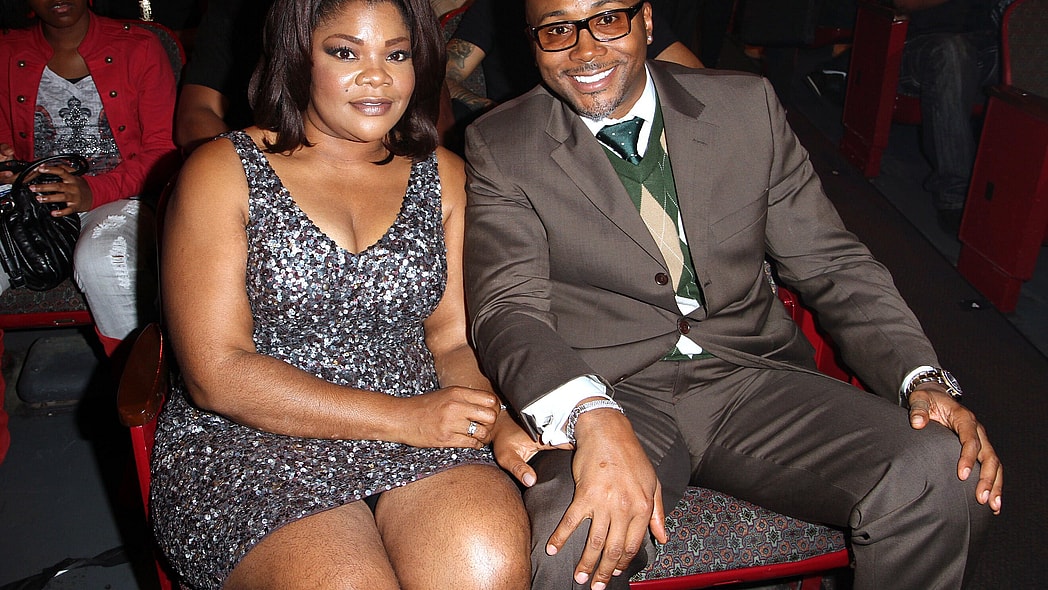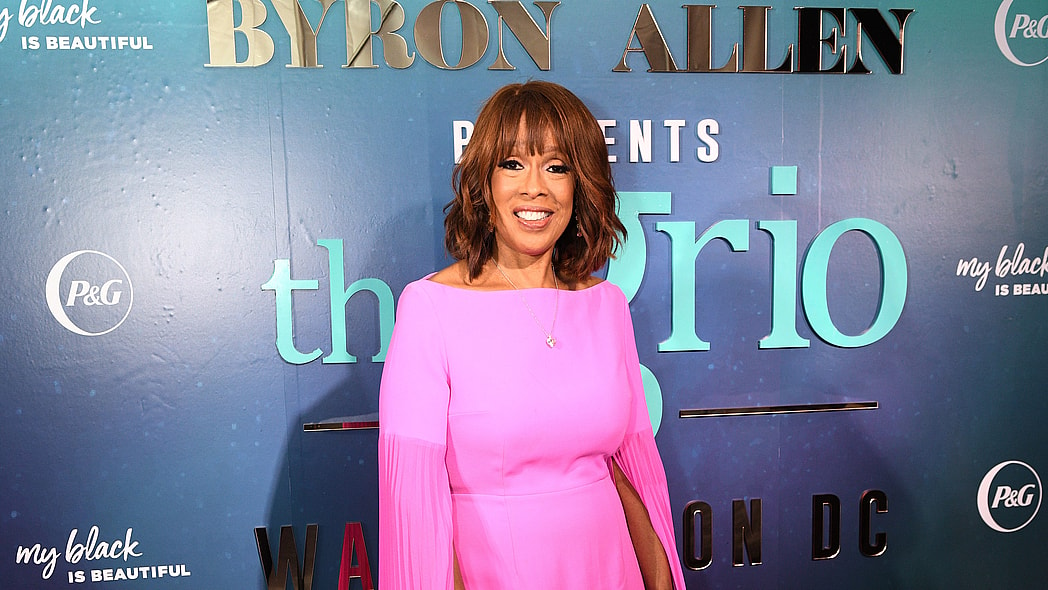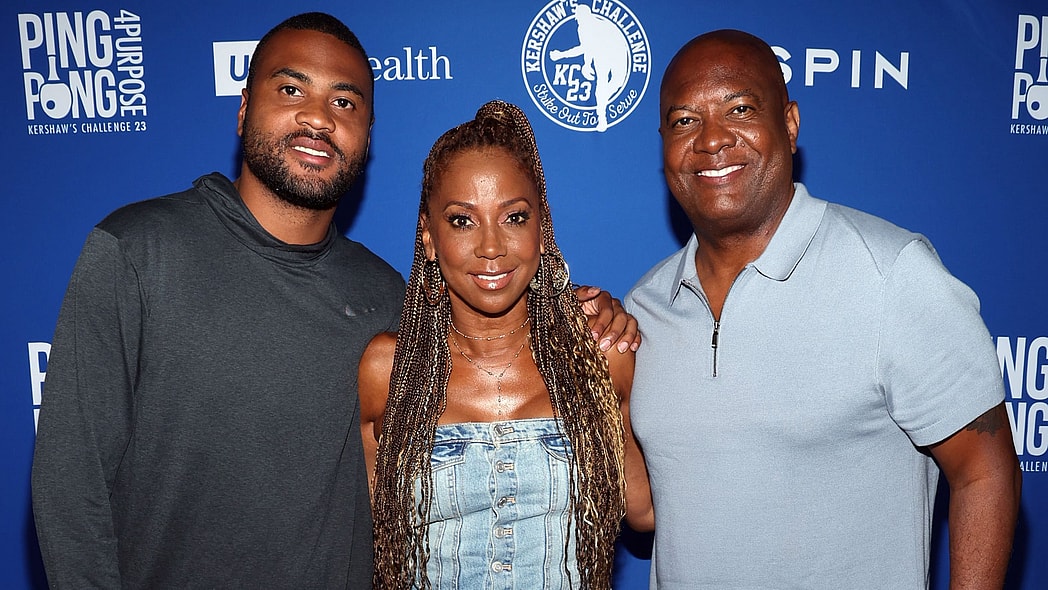“Notes on faith” is theGrio’s inspirational, interdenominational series featuring Black thought leaders across faiths.
Come when my heart is full of grief
Or when my heart is merry;
Come with the falling of the leaf
Or with the redd’ning cherry.
Come when the year’s first blossom blows,
Come when the summer gleams and glows,
Come with the winter’s drifting snows,
And you are welcome, welcome.
— Excerpted from “Invitation to Love” by Paul Laurence Dunbar
This week, many around the world will celebrate love on Valentine’s Day. Rooted in religious traditions and folklore, what is now most commonly accentuated in the holiday may be the gestures — the flowers, cards, candy, sonnets, and serenades. But when we consider the notion of an ever-enduring love, be it romantic, platonic, or familial, those demonstrations can distract us or even distort our expectations of what love really means, and how it most often shows up in non-celebratory ways.
Whether you are a fan of Mo’Nique or find her personality or approach to “truth-telling” to be “difficult,” what she conveyed about her husband’s expressions of love during her headline-making appearance on Shannon Sharpe’s “Club Shay Shay” was worth considering as we approach this Valentine’s Day week.

“When I was at my lowest, he loved me like I was at my best,” was among the many quotables Mo’Nique used to describe her 18-year marriage to Sydney Hicks, a man for whom she had a litany of descriptors: manager, confidante, and (we will suspend judgment here) “Daddy” among them. Again, suspending any ideas or criticisms of the couple’s marriage, which they have confirmed is non-monogamous, and instead taking what she shared at face value: Is this not what each of us should desire in a relationship — someone who we can invite into our sincerest attempts to do and be better? Don’t we dream of someone who encourages us to stand tall in our convictions, someone committed to being there every step of the way, encouraging and helping us along?
When we think about love — sweet, Black love — that persists through it all, isn’t that type of commitment what we should desire for everyone? Black brothers, we know what you endure. Black sisters, we see you and know what you face. As a married couple, we are rooted in the full spectrum of loving, from friendship to fraternal-sororal bonds to romantic love. We know whatever we are up against in what can be a cold and cruel world — whether standing against injustices in our community, standing in the pulpit before congregations, or standing at the podium delivering lectures that challenge the Eurocentric academy — when we get home to each other, it’s humbling to have at least one person who unequivocally stands in your corner! This is the sweet Black love Mo’Nique speaks of that truly resonates.
Whether romantic or non-romantic, how many of us desire someone to be present with us at our worst as if we are at our best? There can be a lot of tension when it comes to the notion of vulnerability. Brothers and sisters are often told to man and woman up when it comes to love. During our courtship, several associates advised us not to utter the words “I love you,” because wearing our emotions on our sleeves would leave us too vulnerable. In their estimation, they believed we should give each other something to work for, but for us, individuals in our late 30s who knew exactly what we wanted and did not want, that approach was unnatural. We were committed to not playing any games; we didn’t want to be disingenuous or withhold anything from each other, especially not love.
While we agree most of us could benefit from some guidance in navigating emotions in relationships, especially if one is not emotionally mature, this dog-eat-dog world convinces us we are on our own when taking on its difficulties. For many people living through these days, the metric of true success is the willingness and ability to be alone.
We do not accept that premise.
When it comes to care, can we recognize and embrace that it takes careful attention and diligence to walk alongside someone, especially at their most vulnerable — and it is fine to desire that companionship? The increasing demands on our resources — mental, physical, and/or financial — amid a decreasing capacity to sustain leaves many of us running on a hamster wheel of stress and despair. With seemingly few tools at one’s disposal to manage either expectations or one’s shortcomings, these stressors can drive a wedge between intimate partners.
However, when we have someone by our side rooting for us unconditionally, being present to help lift us up while holding us accountable when necessary, it can make all the difference in the world. This is why we encourage getting into the shoes of the other person in our relationships to understand better how we can best serve.
Recommended Stories
This is why, when we see Mo’Nique expressing gratitude for her husband’s support or Jay-Z subverting his moment at the Grammys to speak in support of his wife, Beyoncé — while ensuring their daughter stands by his side to witness his solidarity with a woman who seemingly has it all — we recognize these as ways partners can show up for each other. Likewise, when we see examples like Tabitha Brown facilitating the early retirement of her husband, Chance Brown, or Niecy Nash-Betts praising her wife, Jessica Betts, for holding her aloft during moments of defeat as she accepted her first Emmy, we see Black love in action.
Despite any critiques one may rightfully have of Jay-Z, Mo’Nique, or any other celebrity, we don’t have to throw the baby out with the bathwater. There is no perfect example or perfect couple. But there are people who are trying and doing better.
We see glimpses of what can be achieved when we choose each other, again and again. We can conquer the world.
We all should maintain a high standard of support for each other, and a commitment to maintaining this standard, including being open to accountability when we fall short. This is an invitation to truly love and be loved, and the question is not necessarily what are you ready for, but what are you open to? Indeed, the readiness is evident by the intention to open yourself up to the adventure.
So, let us invite you to love, a love that is clear about its assignment. The kind of love eager to be solid for and with us, when we might otherwise seem a mess. The kind of love that is wherever we are, and is willing to sustain us through it.
We invite you to love in ways that genuinely resonate with you and how you want to be loved — for yourself and others. We invite you to that “risk it all,” foolish love that exposes us to the wild abandon found in true liberation. We invite you to a love that heals the wounds of generational trauma and that our progeny quakes with excitement to build upon; that “You and I” kind of love Stevie Wonder sang about that empowers and emboldens us to conquer worlds together. This invitation to love, should you accept it, is an invitation to realize a profound experience of the divine. We dare you to take that leap with us. You won’t regret it.
Will it stay
The love you feel for me, will it say
That you will be by my side
To see me through
Until my life is through
Well, in my mind, we can conquer the world
In love, you and I, you and I, you and I
— Excerpted from “You and I” by Stevie Wonder

Rev. Dr. Alisha Lola Jones is a faith leader helping people to find their groove in a fast-paced world, as a consultant for various arts and faith organizations and professor of music in contemporary societies at the University of Cambridge in Cambridge, England. She is an award-winning author of Flaming? The Peculiar Theopolitics of Fire and Desire in Black Male Gospel Performance (Oxford University Press). For more information, please visit DrAlisha.com.
Rev. Calvin Taylor Skinner is dedicated to empowering frontline communities in Knoxville, Tenn. and the United Kingdom. He uses faith and policy to address energy justice, criminal justice reform, voter education/mobilization, electoral politics, and global affairs. Along with his wife, Rev. Dr. Alisha Lola Jones, they lead InSight Initiative, a consulting firm focusing on capacity building and live events production.
Never miss a beat: Get our daily stories straight to your inbox with theGrio’s newsletter.









